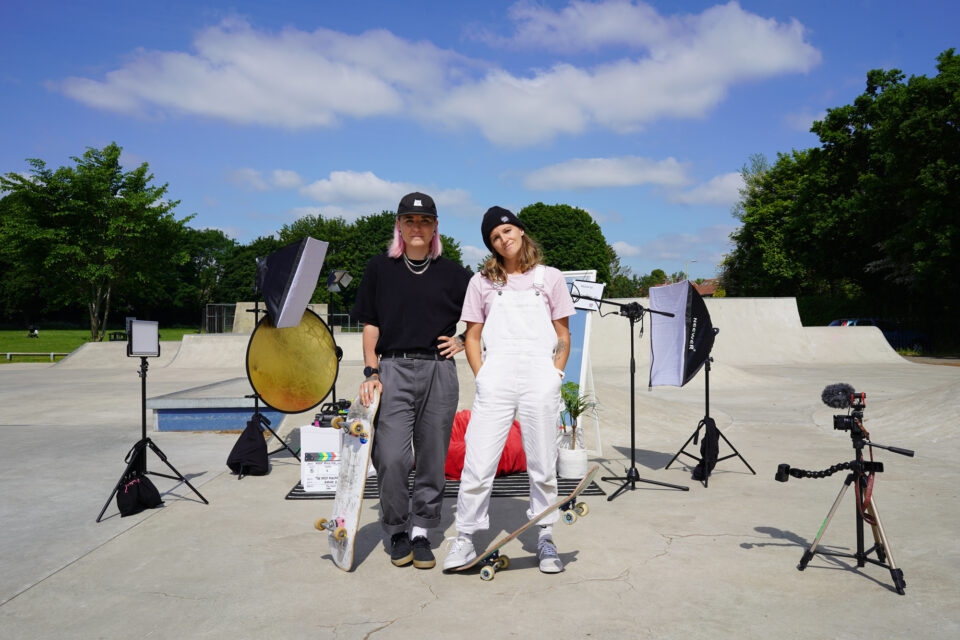Previous post
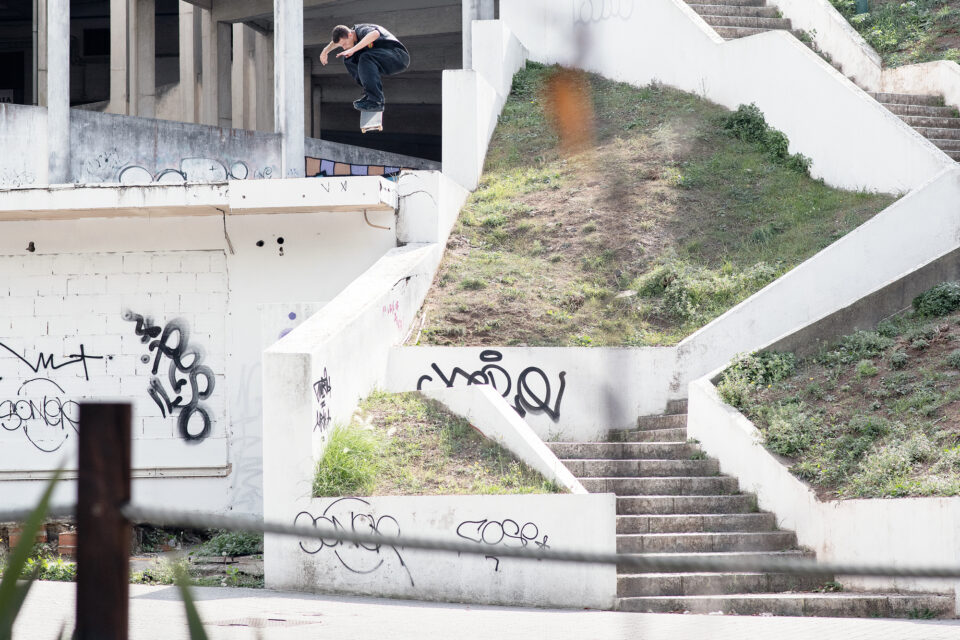
We caught up for a chat with skateboarder, dancer and animator Sofia Negri about her film The Skatebook, which was screened at last year’s Vladimir Film Festival, among many festivals, and is released online today. The Skatebook is a short animated documentary, which brings together a variety of voices from the skateboarding scene in London. Mums, young professionals, teenagers and older skaters share their fears, hopes and thoughts about what skateboarding means to them. Sofia brings these voices to life through her beautiful animations.
Interview: Kingsford
Photography: Coppens
First of all, tell us about your background in animation.
Since I was little, I have been a tireless drawer and dancer. Animation for me is the combination of dancing and drawing. When I realised that, I found the one thing that I would do for the rest of my life. I moved to London after school to get into an animation course, since in my Italian home town ‘animators’ are just people who entertain kids on the beach and poolside. I started making films at uni and continued afterwards. I hope to keep crafting visuals, characters and silly scenes for a long time. It gives me so much joy.
How did you start skateboarding?
I started skateboarding in the summer of 2021. One day a friend of mine asked me if I wanted to try skateboarding with her, and I didn’t think twice about it. During my early teens, I used to hang out with skaters in my home town in Italy and became their photographer / videographer for a few years, so I already had a sweet attachment to that world.
Where did you start skating?
Cantelowes, my local skatepark in Camden.
How did you find the skate scene in London?
I was pretty shy at the start, but slowly I started realising that everyone around me at the park was doing the same thing: trying things out, playing around, getting frustrated and practicing their best tricks for relief. It didn’t matter who they were or how good at skating they were, in this space we were all united in this state of mind. I also found that this wild public space makes everyone more empathic with one another. Most people are always happy to say hello and have a little chat. It’s a lovely thing to have in a big city like London, where people just rush from one side to the other.
Where are your favourite places to skate?
The little flat spot in Victoria Park by the gates, Cantelowes, because it’s right by my flat, and Clapham Skatepark, which wins my heart because of how spacious it is, the view of the park (great sunsets), lights at night and great variety to practice all sorts of things.
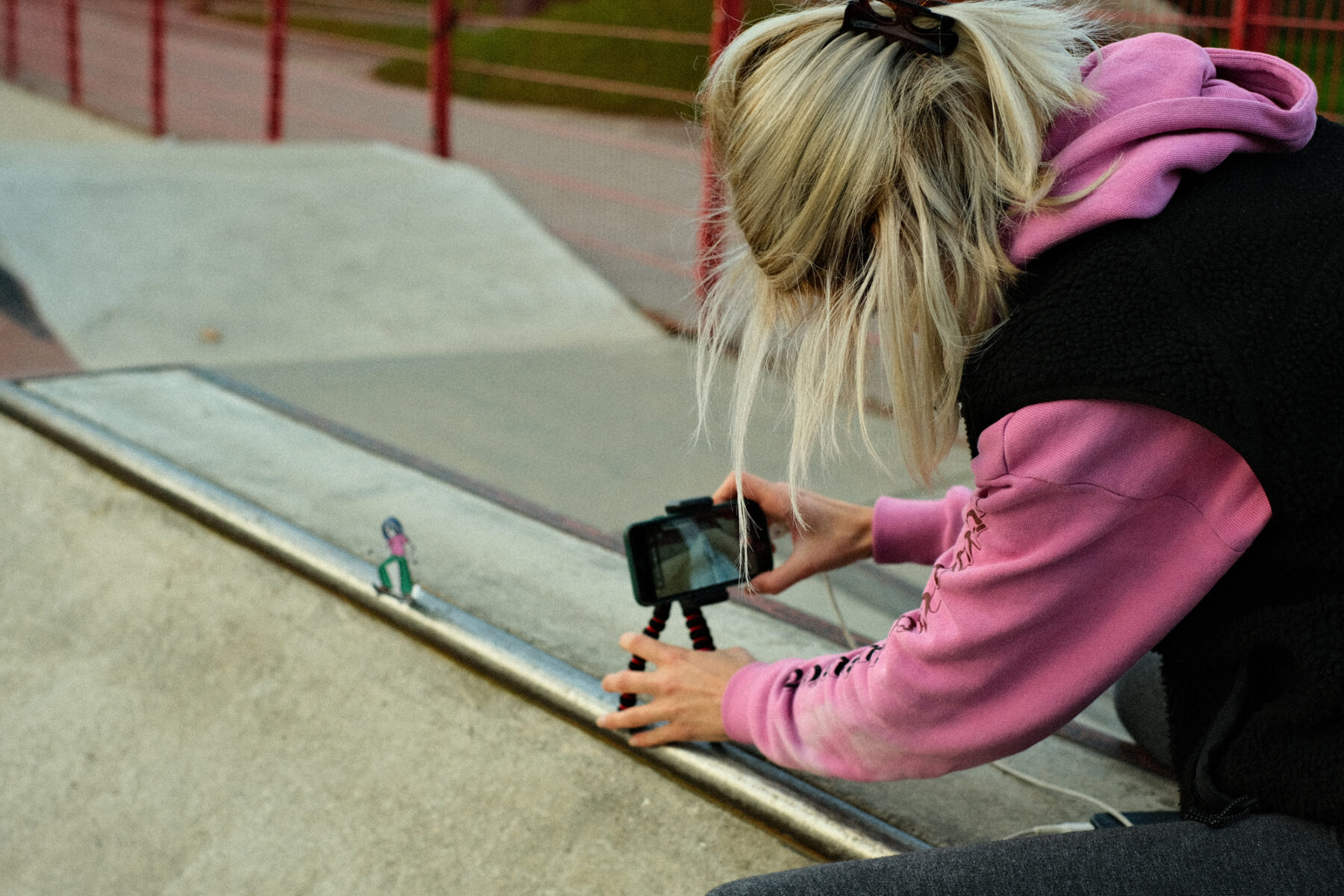
What motivated you to make The Skatebook?
I started making little animations in my sketchbooks, inspired by my failures while learning how to skateboard. They were really fun to make, so I wanted to take them further. I thought that pairing these visuals with the chats that I would usually have at the skatepark would really encapsulate the spirit of the park and community. I pitched this idea to the Roundhouse Film Fund in 2022 and got a little grant to make a short film – I couldn’t believe it at first! And so The Skatebook came to life.
Is there a particular message you wanted to get across with the film?
My interviews didn’t really have a specific structure. I let people chat about what they cared about most and let the conversations unfold spontaneously. I think in my edit I wanted to highlight the diversity of voices, but also that we all share the same fears and hopes, despite our differences in background, experience and objectives.
How did you go about finding people to share their experiences for the film?
I started interviewing people that I already chatted with at the skatepark, choosing the ones that would be more comfortable to take the conversation further. Then, by word of mouth, they would recommend other people they were sure had great ideas and experiences to share. In this way, I met new incredible people that otherwise, I would have never known.
Every interview revealed something new to me, whether it was about community, fears or the history of skateboarding. Interviewing Paco, the most experienced skater, made me realise how much cultural weight skateboarding has at this point, and how much it has transformed in the last decade or so. I realised that because of these changes, myself and other people approached this activity that otherwise would still be known as niche and underground.
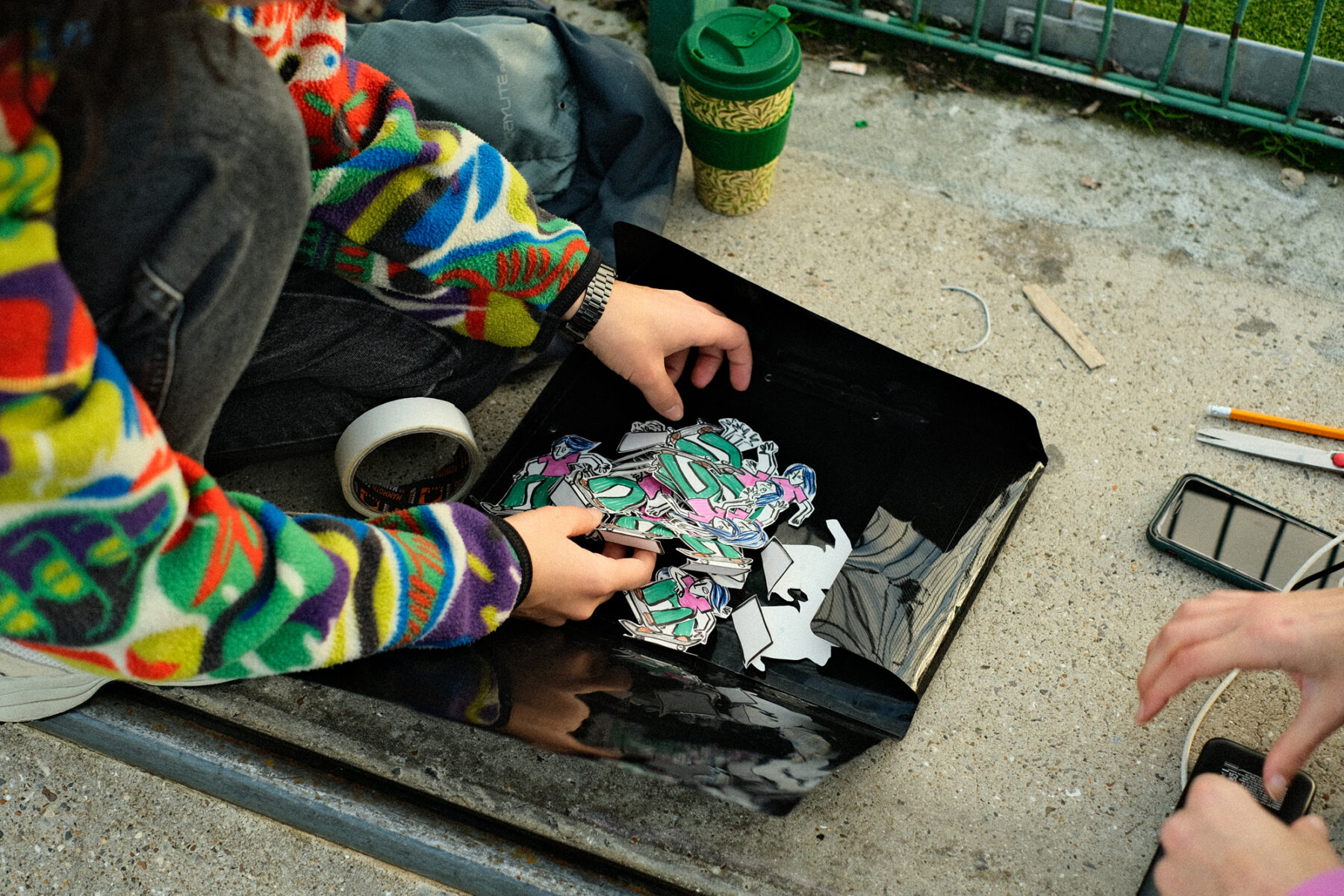
How important is London to the film?
This city is definitely not well known for being a friendly, warm place. Through skateboarding, we can find little pockets of community in the wider urban environment, which is a real blessing. The film travels from park to park, linking them through the experiences of the skaters, so that the audience can relate the conversation to real places that they might know, or have heard of. The city landscape loses its concrete, grey look; it comes to life, vibrant and animated… in every sense in the film!
When you started animating The Skatebook, you spilled water on your laptop and had to take a different approach than planned. Talk us through your process in making the film.
I was hoping to make the film mostly digitally animated on live action due to time constraints. I had only three months to make it, after the Roundhouse gave me the grant. After that first-day incident, I started animating on paper, thinking: “Well, this is how it goes. The first scene of this film is all going to be paper, but when the laptop is fixed, I’ll definitely need to animate this on my laptop.” However, the look of it was amazing. I just had to keep it all on paper. The process was 10 times longer, but very worth it.
How do you feel about this accident and its impact on your film now?
It was clearly meant to be! It definitely gave a great kickstart to my film, one of those moments when it’s all about quick decision making. I kept this mode throughout the making of the film.
And also, now I don’t keep pints of water near my workspace.
Tell us more about the Roundhouse funding.
The Roundhouse Film Fund gives six filmmakers a little grant of £1000 every year – three in winter, three in summer. After you submit your idea, you might get selected – it’s really competitive! 150-200 people apply every seasonal round – then you have three months to complete a five-minute film with a grand. It’s not too bad for a live action short, but for an animation, it was bonkers hours working in the studio. But worth it. I had a part-time job as an animation technician at Middlesex University at the time, so that helped me sustain myself for those months.
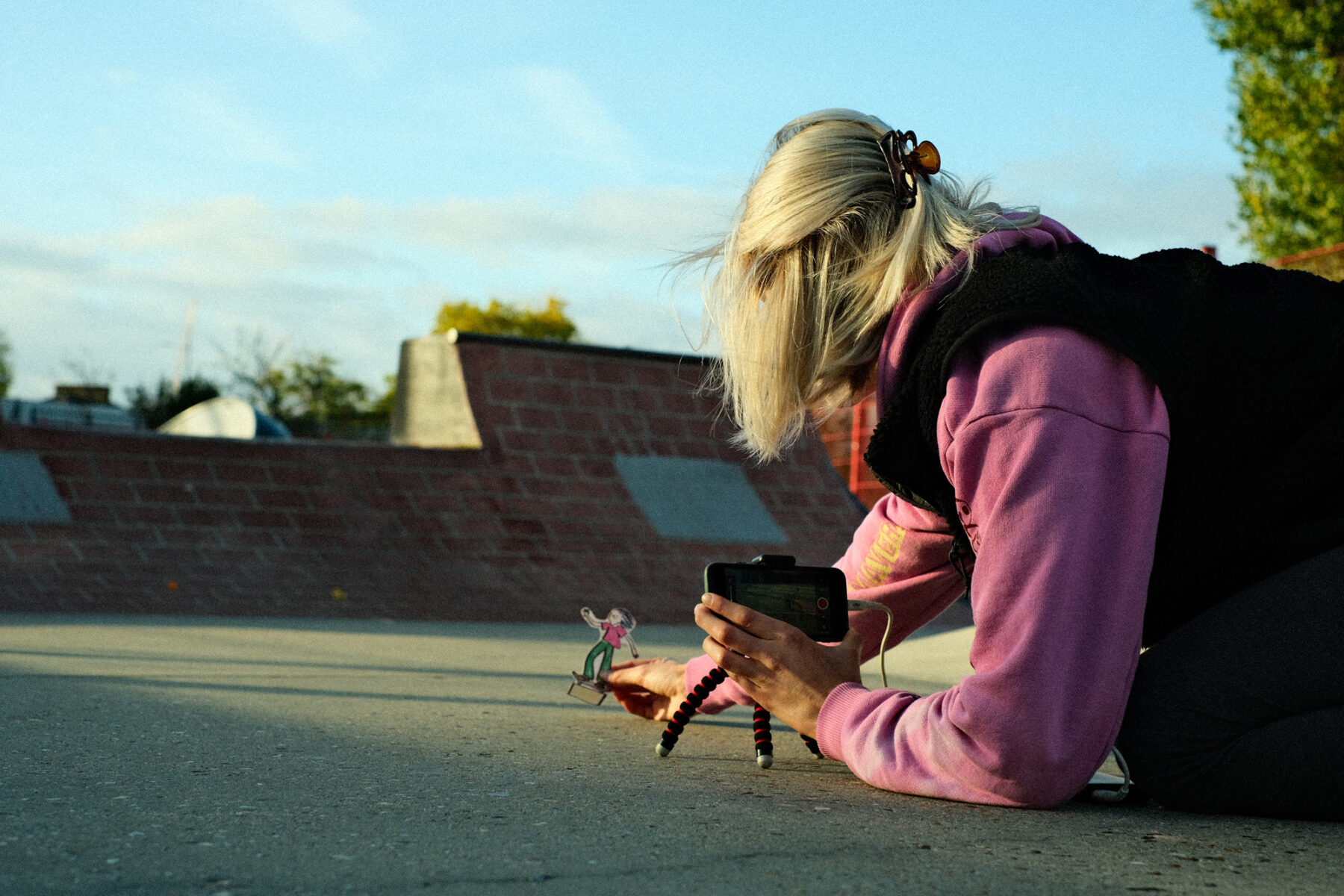
The Skatebook has shown at a long list of film festivals. How did you find the experience of submitting and also attending the festivals?
Attending festivals with my film were definitely the best experiences of last year. Seeing a real audience reacting to my film, and giving me feedback, was the greatest gift The Skatebook gave me. So many people came to me after the screenings, asking if they could come skate with me! It was heartwarming. I got the film into 14 festivals, but to give a bit of perspective on the film festival world, I submitted it to 45!
You showed The Skatebook at the 2023 Vladimir Film Festival in Fažana, Croatia. Tell us about this experience.
Vladimir Film Festival is a real gem. You can tell when an event is born out of genuine love and care, in this case for film and skateboarding. I found the perfect audience for The Skatebook there, despite feeling a bit intimidated at first. I didn’t know anyone, but everyone was so friendly and simply happy to be there, that the atmosphere was always welcoming and warm. I met incredible people and shared very heartfelt moments.
How has the film been received?
For being a little five-minute paper film, it really went further than expected! It’s a feel-good documentary, which is something I really like about it. The audience comes out of it feeling excited and empowered. I even got a nomination for best documentary at the BFI Future Film Festival, which is crazy! I didn’t win it, but just having the film recognised as a nomination-worthy documentary is already a huge achievement.
Are you working on anything at the moment?
The Roundhouse gave me some extra support as Best Emerging Filmmaker of 2022 last year, which meant one year of mentoring and funding for my development as a filmmaker. This really helped me to start writing a new film, and travel to festivals and workshops around Europe. I started writing a skate-related film, which started off as a documentary, but then became a very personal story. Skateboarding will serve as a sort of metaphor for it… If you want to know more, stay tuned!

